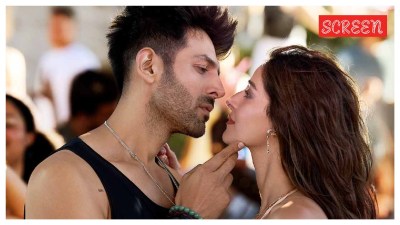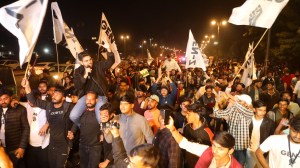For Riyadh, only Muslims
This is no reflection on recent appointments, but I have always been uncomfortable with the principle that our ambassador to Saudi Arabia mu...

This is no reflection on recent appointments, but I have always been uncomfortable with the principle that our ambassador to Saudi Arabia must always be a Muslim.
One reason is that governments in New Delhi are averse to withdrawing what the Muslims may in the government8217;s view have come to cherish as something of a right. Governments find it politically expedient to dole out this appointment by way of patronage. The interesting point is that those who scream 8220;appeasement8221; on the slightest provocation are silent on this one partly because, when in power, they, too, have done the same thing.
The argument that a Muslim ambassador is essential in Riyadh because of the two holy places, Mecca and Madina, and the annual management of Haj, is disingeneous. Muslims from most countries in the world visit the holy cities and many of them do not have Muslims as ambassadors to Saudi Arabia. Indeed, there are Hajis even from the US which, I dare say, has never been handicapped by not having a Muslim ambassador. Indeed, in terms of access in Riyadh, the non-Muslim ambassadors of the US, Europe, Russia, China, are infinitely more effective than the men of faith that New Delhi sends out.
Yes, the annual Haj is an enormous project but the government needs to do no more than function as a facilitator with headquarters in Jeddah, an hour8217;s drive from Mecca. One does not require a Muslim ambassador observing pilgrims from his Riyadh perch. I am not for a moment arguing that Muslims should be a taboo for the ambassadorial gaddi in Riyadh. But the institutionalisation of Saudi Arabia as the high point of Muslim diplomatic aspiration is harmful for Muslims as well as the foreign office. It is harmful for Muslims because it smacks of just the sort of tokenism that can block other interesting slots for them, in diplomacy and elsewhere. The foreign office loses because political appointees will bask in patronage but not have the skills to extract the maximum for the country from a destination which has high saliency not because of pilgrim centres but because of its political and economic importance. It deserves South Block8217;s best analytical skills.
Much more important than having a Muslim in Riyadh is to have in the embassy 8212; ambassador downwards 8212; Arabists and Arab speaking officers. Do we have a single Arab-speaking ambassador or IFS officer in any Arab country? Do our intelligence agencies have such experts? If they do not, what are they gathering and how? Likewise, do we have Persian or Darri speaking officers in Kabul, Dushambe and Tehran? Is it not a shame if the answer is no?
If we have Russian, Chinese, French, German speakers in Moscow, Beijing, Paris and Berlin, but no Arabic and Persian speakers in the Muslim world, then the issue deserves to be analysed on another plane. Honest self appraisal will reveal that all our professions of abiding civilisational links with the Arab and Persian speaking worlds are a little hollow. If you ask a Tajik to name his greatest poet he will not mention Hafiz or Saadi. He will mention Bedil, whose well-manicured grave faces Pragati Maidan in New Delhi. How many of us know this? This digression is not a purist8217;s lament but a pointer to a paradox: economic interest is in direct proportion to cultural disinterest in a region.
It doesn8217;t worry me too much today, as I write, that there are no Muslim foreign service officers in the MEA. If a sufficient number of Muslims qualified for the IAS-IFS examination, that would not be the case. That problem is of a different order. What bothers me is the low priority in terms of postings our foreign service aspirants accord to the Arab world, Central Asia and Africa, all regions which are being fiercely contested by the big powers and where goodwill for India is enormous. A big house and golf 8212; and no work 8212; in the Hague is considered more attractive than a dynamic station like Khartoum where we have already made massive investments in the oil sector and where a dangerous project to redraw national boundaries is afoot.
Jordan, the watchtower of the Arab world, has had no Indian ambassador for a year. There8217;s no Arabic-speaking officer in our Baghdad embassy. There8217;s no one who has elementary knowledge of Shia theology to engage the ayotullahs in Najaf who will certainly play a future role in that unfortunate land. Not just the MEA, even organisations like ONGC are sending out teams without knowledge of the local language or culture. There is a problem of attitude here which needs to be addressed. Keeping a seat in Riyadh warm for a handpicked Muslim keeps us from discussing essentials.
- 01
- 02
- 03
- 04
- 05































